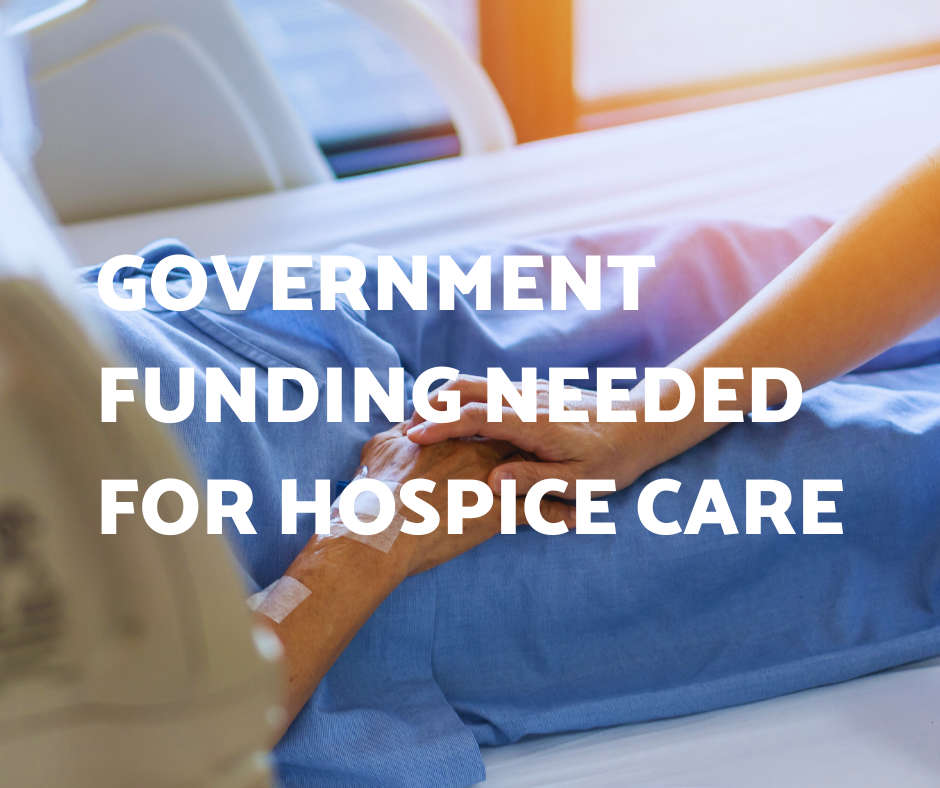
The Chief Executive of St Catherine's Hospice has spoken of his heartbreak after the organisation was forced to cut 40 jobs in a desperate bid to stay afloat.
Based in Pease Pottage and serving communities across West Sussex and Surrey, the hospice announced in September that it must save £1.5 million to secure its future.
These cuts are not an isolated incident. They come amid growing calls from Hospice UK — the industry’s national representative body — for an urgent government funding package to prevent further job losses and service reductions across the hospice sector.
The plight of St Catherine's highlights a broader crisis facing UK hospices, which play a crucial role in providing end-of-life care, offering emotional and practical support to patients and their families. Unlike NHS hospitals, most hospices operate as charities, relying heavily on donations, community fundraising, and grants to meet their financial needs.
Why Hospices Are Essential
-
Compassionate End-of-Life Care
Hospices provide vital palliative care for people with life-limiting illnesses. Their approach is centred on dignity, compassion, and comfort, ensuring patients receive physical, emotional, and spiritual support. Unlike hospitals, where medical treatment is the priority, hospices prioritise quality of life, pain management, and holistic well-being. -
Support for Families and Caregivers
End-of-life care extends beyond the patient. Hospices offer essential support for family members, helping them navigate the emotional and psychological challenges of grief and loss. Bereavement counselling, support groups, and family-focused services ease the emotional strain on loved ones. -
Community-Centric Care
Many hospices operate within local communities, providing care that is tailored to the unique needs of local residents. Community ties also foster fundraising support, volunteer networks, and public awareness. St Catherine's, for example, supports patients across West Sussex and Surrey, playing an integral role in local healthcare. -
Reducing Pressure on the NHS
By providing end-of-life care outside of hospitals, hospices ease the burden on the NHS. Without them, many terminally ill patients would require hospital beds and medical attention, increasing strain on already overstretched resources. Hospices enable more patients to die at home or in a familiar environment, which is a preference for many families. -
Mental Health and Emotional Wellbeing
Patients facing terminal illness often experience anxiety, depression, and existential distress. Hospice staff — including counsellors, therapists, and chaplains — offer specialised mental health support to address these emotional challenges.

 Police in Littlehampton are investigating two instances of fraud involving individuals impersonating police
Police in Littlehampton are investigating two instances of fraud involving individuals impersonating police
 WATCH: Criminals dealt crushing blow as seized e-scooters and electric motorcycles destroyed
WATCH: Criminals dealt crushing blow as seized e-scooters and electric motorcycles destroyed
 Chichester District Council thanks people for helping to shape its work on climate change
Chichester District Council thanks people for helping to shape its work on climate change
 Man charged with attempted murder following incident in Cootham, near Storrington
Man charged with attempted murder following incident in Cootham, near Storrington
 Southern Water questioned by MP's
Southern Water questioned by MP's
 Investigation continues into death of a man in Brighton
Investigation continues into death of a man in Brighton
 Consultation begins to gather people's views on new housing strategy for the Chichester District
Consultation begins to gather people's views on new housing strategy for the Chichester District
 Warning in the South of coastal landfill sites spilling into the sea
Warning in the South of coastal landfill sites spilling into the sea
 East Wittering set to welcome a free pop-up soup kitchen, thanks to UK Harvest
East Wittering set to welcome a free pop-up soup kitchen, thanks to UK Harvest
 Appeal after collision outside Haywards Heath hospital
Appeal after collision outside Haywards Heath hospital






